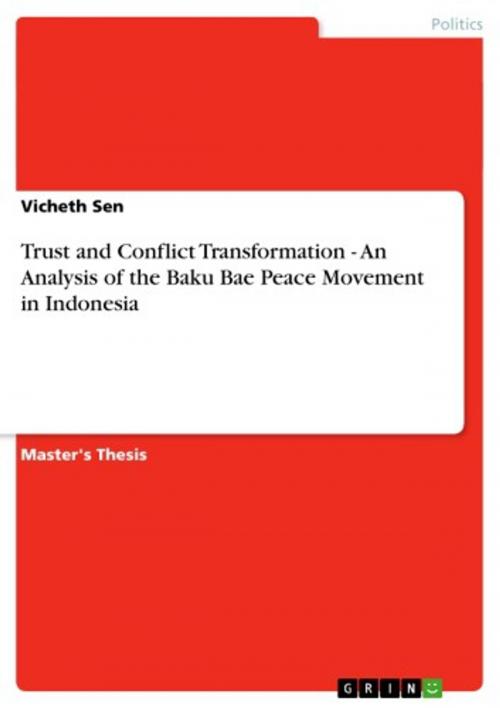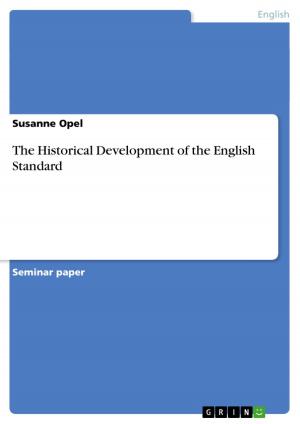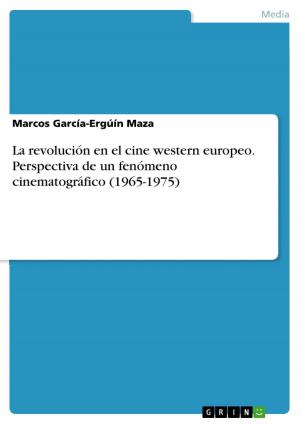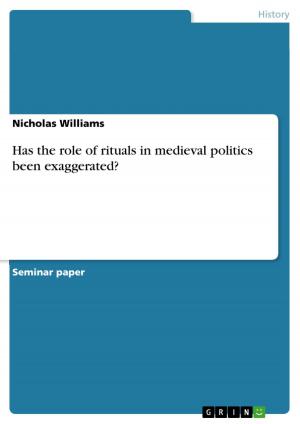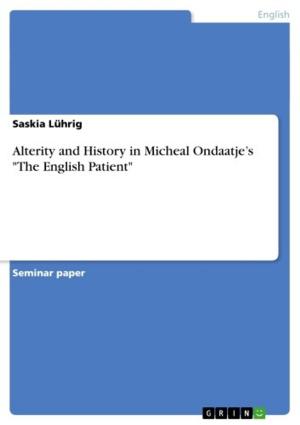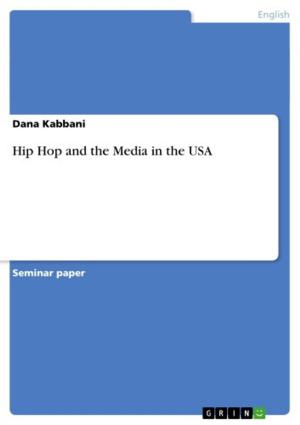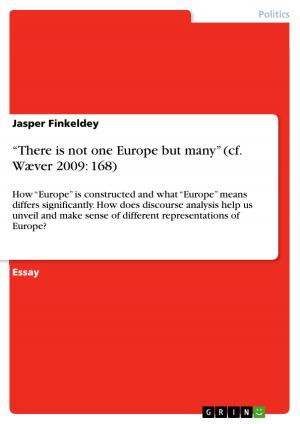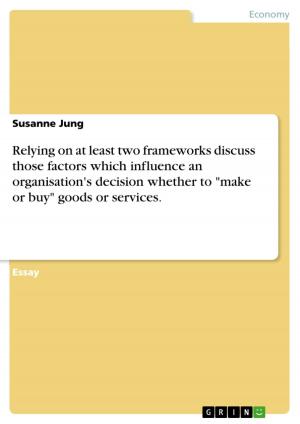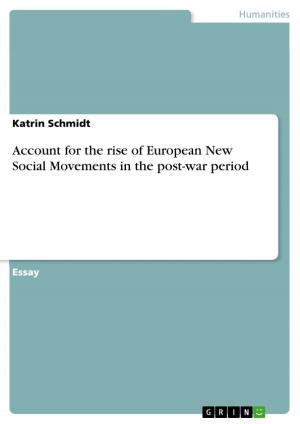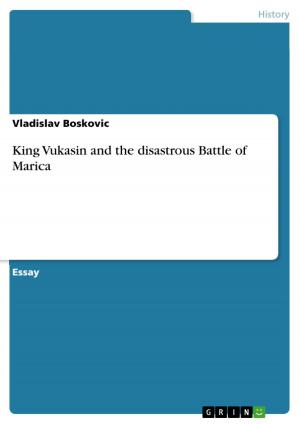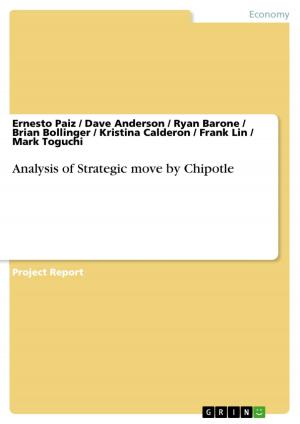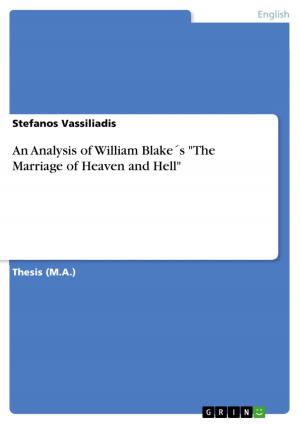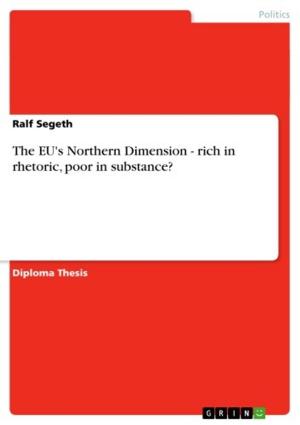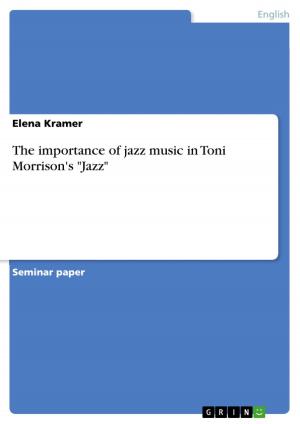Trust and Conflict Transformation - An Analysis of the Baku Bae Peace Movement in Indonesia
An Analysis of the Baku Bae Peace Movement in Indonesia
Nonfiction, Social & Cultural Studies, Political Science, International, International Security| Author: | Vicheth Sen | ISBN: | 9783640596324 |
| Publisher: | GRIN Publishing | Publication: | April 19, 2010 |
| Imprint: | GRIN Publishing | Language: | English |
| Author: | Vicheth Sen |
| ISBN: | 9783640596324 |
| Publisher: | GRIN Publishing |
| Publication: | April 19, 2010 |
| Imprint: | GRIN Publishing |
| Language: | English |
Master's Thesis from the year 2009 in the subject Politics - International Politics - Topic: Peace and Conflict Studies, Security, grade: B, University for Peace, language: English, abstract: This paper sets out to understand the role of trust in conflict transformation and to find out whether and how trust can be built in the framework of conflict transformation. A bibliographic research using case study design, this is a qualitative analysis of the Baku Bae Peace Movement in the Maluku Island in Indonesia by employing Lederach's Pyramid Model of Peacebuilding and Allport's Contact Hypothesis as theoretical/conceptual frameworks. The results based on the analysis indicate that trust plays a significant role in both the short- and long-term goals of conflict transformation. In the short term, trust plays a role in re-bridging the communication and dialogue between the conflict parties, contributing to the lessening and ending of violence and paving the way for a negotiation toward peace and reconciliation. In the long run, trust fosters mutual understanding, cooperation, tolerance, acceptance and respect, which are the basis for a collaborative effort toward constructive social change to achieve a desired future-the ultimate goal of conflict transformation. The analysis also shows that trust can be built in the conflict transformation framework by integrating different approaches deemed to promote trust, such as the framework of the Institute for Multi-Track Diplomacy, the conflict resolution skills trainings, the interactive problem-solving workshops, the establishment of neutral zones, and the educational and youth programs, into the framework as a foundation and a component of the conflict intervention. The study, however, concludes that although trust plays a key role in conflict transformation, it is only a component. Therefore, a comprehensive understanding of a conflict prior to any intervention is essential for identifying and prioritizing key components in the intervention strategy.
Master's Thesis from the year 2009 in the subject Politics - International Politics - Topic: Peace and Conflict Studies, Security, grade: B, University for Peace, language: English, abstract: This paper sets out to understand the role of trust in conflict transformation and to find out whether and how trust can be built in the framework of conflict transformation. A bibliographic research using case study design, this is a qualitative analysis of the Baku Bae Peace Movement in the Maluku Island in Indonesia by employing Lederach's Pyramid Model of Peacebuilding and Allport's Contact Hypothesis as theoretical/conceptual frameworks. The results based on the analysis indicate that trust plays a significant role in both the short- and long-term goals of conflict transformation. In the short term, trust plays a role in re-bridging the communication and dialogue between the conflict parties, contributing to the lessening and ending of violence and paving the way for a negotiation toward peace and reconciliation. In the long run, trust fosters mutual understanding, cooperation, tolerance, acceptance and respect, which are the basis for a collaborative effort toward constructive social change to achieve a desired future-the ultimate goal of conflict transformation. The analysis also shows that trust can be built in the conflict transformation framework by integrating different approaches deemed to promote trust, such as the framework of the Institute for Multi-Track Diplomacy, the conflict resolution skills trainings, the interactive problem-solving workshops, the establishment of neutral zones, and the educational and youth programs, into the framework as a foundation and a component of the conflict intervention. The study, however, concludes that although trust plays a key role in conflict transformation, it is only a component. Therefore, a comprehensive understanding of a conflict prior to any intervention is essential for identifying and prioritizing key components in the intervention strategy.
